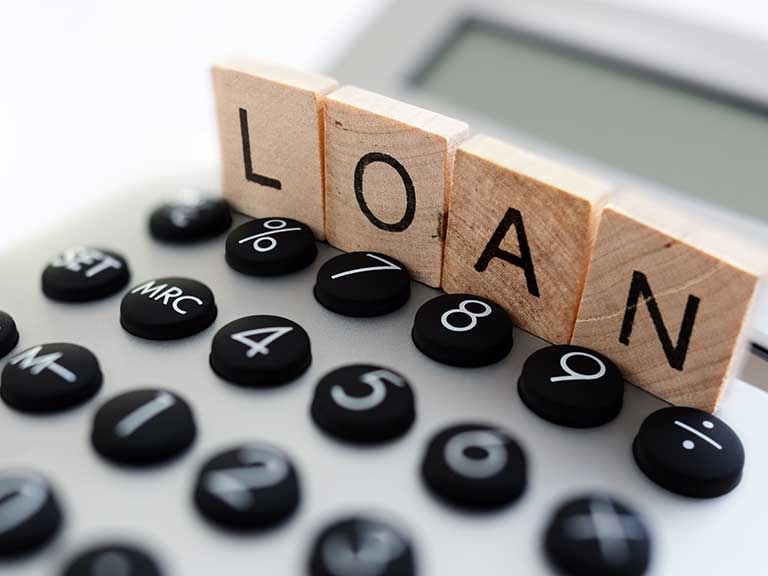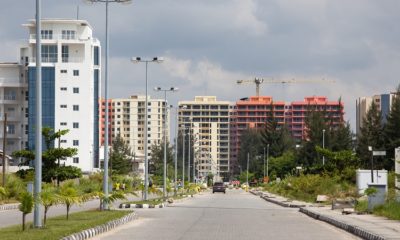- N24.39tn Debt: IMF Worries Over Nigeria’s Repayment Capacity
The International Monetary Fund, on Tuesday, expressed worry over Nigeria’s ability to repay its foreign debt which had continued to rise.
Though it said conditions were favourable for the country to continue to borrow, the IMF equally expressed worry over the capacity to repay.
The Financial Counsellor and Director, Monetary and Capital Markets Department, IMF, Tobias Adrian, while presenting the Global Financial Stability Report at the ongoing joint annual spring meetings with the World Bank in Washington DC, said, “Nigeria has been borrowing in international markets but we worry. So, on the one hand, that is very good because it allows Nigeria to invest more; but on the other hand, we do worry about rollover risks going forward.
“At the moment, funding conditions in economies such as Nigeria and other sub-Saharan African countries are very favourable but that might change at some point. And there is a risk of rollovers and there is the risk of whether these needs for refinancing can be met in the future.”
Recall that Nigeria’s total debt profile as of December 31, 2018, stood at N24.387tn. The figure swelled by 12.25 per cent from N21.725tn in 2017 to N24.39tn in 2018.
The Debt Management Office said the debt rose by N2.66tn from December 31, 2017 to December 31, 2018.
Statistics provided by the DMO showed that the country’s public debt rose from N21.73tn in 2017 to N24.39tn within the one-year period.
According to the DMO, the year-on-year growth of public debt show 12.25 per cent within the one-year period.
However, in a swift reaction to the IMF statement, the Federal Government described the nation’s debt burden as sustainable. Speaking on Wednesday in Abuja, the Minister of Budget and National Planning, Senator Udoma Udo-Udoma, argued that it posed no harm to the economy of Nigeria.
Udo-Udoma had argued that borrowing to spend on infrastructure and productive purposes was done by all countries, so long as there was a back-up revenue base.
The minister spoke at the Presidential Villa at the end of Wednesday’s Federal Executive Council meeting.
It was presided over by Vice-President Yemi Osinbajo in the absence of President Muhammadu Buhari.
He said, “With regard to our debts, our debts are sustainable.
“We do have a revenue challenge and we are focusing on that. Once the revenues come up, it will be obvious that we don’t have a debt problem at all.
“We are working on a number of initiatives to increase our revenues. We are looking at initiatives to widen the tax base. We are looking at initiatives to increase efficiency in collection.
“We are looking at a single window, which will help to increase efficiency, custom collections. We are looking at many different ways to improve revenues.
“The debts are sustainable; every nation borrows. We are working on increasing our revenues.”
Udo-Udoma also spoke on the 2019 budget still awaiting passage by the National Assembly.
“With regard to the budget, we are happy to see the focus of the National Assembly on the budget and we look forward to whenever it is passed and the executive receiving it,” he added.
Last week, the Peoples Democratic Party had raised the alarm over the country’s debt profile.
The party, which alleged that Buhari’s administration borrowed so much money in the last four years, noted that by 2016, the debt stock was already N17.5tn.
When asked to comment on the risk of Chinese growing investment in Africa, Adrian said, “Lending — capital flows in general and these include flows from China — are, of course, important for development, on the one hand. On the other hand, what is very important in those lending arrangements are the terms of the loans.”
He urged recipients of Chinese loans in sub-Saharan Africa to ensure that terms were favourable to them.
“We urge countries to make sure that when they borrow from abroad, that the terms are favourable for the borrower. In Particular, we tend to recommend that loans to countries should be conforming to Paris Club arrangements. And that is not always the case with loans from China.”
Meanwhile, the IMF has said corruption is a challenge for many resource-rich countries and this has affected the way they manage their Sovereign Wealth Funds.
In view of this, the Bretton Wood institution ranked Nigeria the second worst performer on the Sovereign Wealth Funds user index only ahead of Qatar in the Fiscal Monitor report also released on Wednesday.
Relying on the data from the Natural Resource Governance Institute and Worldwide Governance Indicators, the IMF said the index was compiled using the corporate governance and transparency scores of the Sovereign Wealth Funds and the size of assets as a percentage of 2016 GDP of the countries considered.
Other African countries on the index that performed better than Nigeria include Sudan, Equatorial Guinea, Chad, Gabon, Angola, Libya, and Botswana. Ghana came second after Columbia.
The Nigerian Sovereign Wealth Fund was put at $2.15bn in May 2018.
The IMF in the report advised that “Sovereign Wealth Funds should abide by clearly established rules and governance arrangements, and report regularly on operations and investment performance, with eternally audited annual financial statements.”
Adding that the Sovereign Wealth Funds should not be allowed to undertake extra-budgetary spending, the IMF said, “It is critical to develop a strong institutional framework to manage these resources—including good management of the financial assets kept in sovereign wealth funds—and to ensure that proceeds are appropriately spent. This remains a significant challenge in many resource-rich countries that, on average, have weaker institutions and higher corruption
“The governance challenges of commodity-rich countries— that is, the management of public assets— call for ensuring a high degree of transparency and accountability in the exploration of such resources. Countries should develop frameworks that limit discretion, given the high risk of abuse, and allow for heavy scrutiny.”
The Deputy Director, Fiscal Affairs Department, IMF, Paolo Mauro, emphasised the need for transparency of Sovereign Wealth Funds, adding that it was important for resource-rich countries to channel appropriately their resources to the people that needed it.

 Billionaire Watch3 weeks ago
Billionaire Watch3 weeks ago
 Startups4 weeks ago
Startups4 weeks ago
 News4 weeks ago
News4 weeks ago
 News4 weeks ago
News4 weeks ago
 Bitcoin4 weeks ago
Bitcoin4 weeks ago
 Naira4 weeks ago
Naira4 weeks ago
 Forex3 weeks ago
Forex3 weeks ago
 Treasury Bills4 weeks ago
Treasury Bills4 weeks ago



























